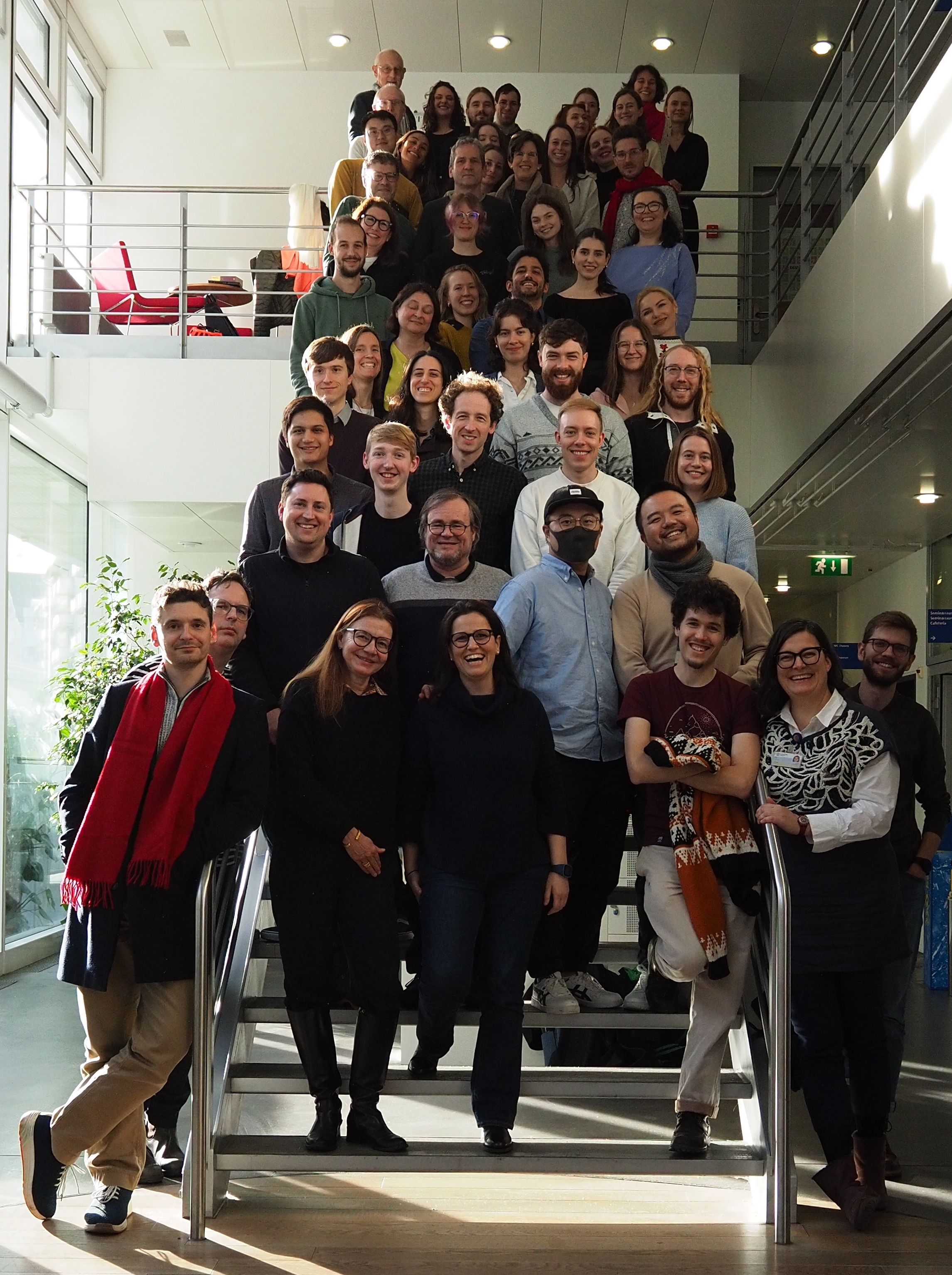The Institute for the Interdisciplinary Study of Language Evolution

Management
The institute is managed by the Director of the Institute, Prof. Dr. Sabine Stoll e-mail
She is supported by the Head of Administration, Anke Benker e-mail
About
The Institute for the Interdisciplinary Study of Language Evolution (ISLE Institute) was launched in 2025 as the successor institution of the Department of Comparative Language Science (DCLS) and the inter-faculty Center for the Interdisciplinary Study of Language Evolution (ISLE Center). ISLE is dedicated to the comparative study of languages and their varieties, with a strong emphasis on the evolution of the current dynamics of language in the form of learning, change and processing. This explicitly evolutionary perspective requires a thoroughly interdisciplinary spirit of team science, bringing together expertise from historical linguistics, distributional-typological linguistics, neuro/-psycholinguistics, animal behavior research, and anthropological linguistics, with robust bridges to other social, biological, medical and cognitive sciences. This approach enables a deeper understanding of how languages evolve, are learned, and function across diverse contexts and how this dynamic is rooted in biological evolution. The ISLE Institute’s interdisciplinary commitment has developed over the past ten years when the former DCLS hosted the inter-faculty ISLE Center, which was co-initiated by Sabine Stoll (DCLS/ISLE) and Marta Manser (Department of Evolutionary Biology and Environmental Studies, Faculty of Science) and then continued by Sabine Stoll and Carel van Schaik (Department of Evolutionary Anthropology, Faculty of Science). The integration between disciplines is further strengthened by the National Centre of Competence in Research (NCCR) Evolving Language, directed by Balthasar Bickel and hosted by the DCLS/ISLE Center since 2020.
Our research profile was further strengthened in 2021 with the introduction of a neuro-cognitive focus, expanding its scope to include the brain-language relationship with appointment of Martin Meyer as a new professor. This addition complements the previously established phylogenetic (diachronic), ontogenetic (developmental), and glottogenetic (biological-evolutionary) foci. In summer 2023, the establishment of a new professorship in Anthropological Linguistics with Prof. John Mansfield added a vital socio-cultural dimension, allowing for a more comprehensive understanding of language evolution in its social and cultural contexts.
The ISLE Institute integrates research on the biological foundations of the human capacity for language learning, change, and processing with the documentation and modeling of grammatical structures across the world’s languages. All research areas are guided by a radically comparative perspective, spanning species, languages, populations, language families, and developmental stages across the human lifespan. A central focus is on the mechanisms of linguistic change and the factors that drive it, spanning neuro-cognitive and social dimensions alike. Collaborations with population geneticists studying both humans and domesticated species further extend the research scope to global and long-term evolutionary dimensions.
The diachronic research perspective is further reinforced through close collaboration among Indo-European studies, distributional-typological linguistics, psycholinguistics and neurolinguistics. This cooperation allows a targeted investigation into the principles and conditions of language dynamics in terms of change and linguistic innovation. A key ambition since the Institute’s inception has been the integration of qualitative analyses with advanced quantitative methods, a combination that has proven highly productive. This is evidenced by a strong record of publications and the successful acquisition of competitive external funding.
The ISLE Institute offers instruction in the form of Bachelor and Master programs in Comparative Linguistics, Evolutionary Language Science, Descriptive Linguistics, Psycholinguistics and Indo-European Linguistics and supervision of Doctorates in the Graduate School's Linguistics track.